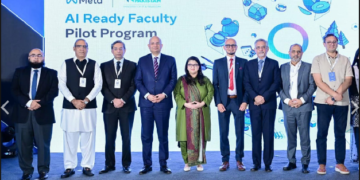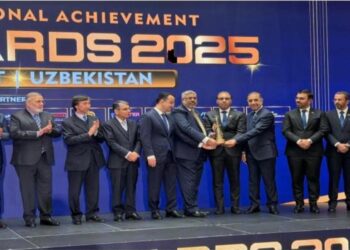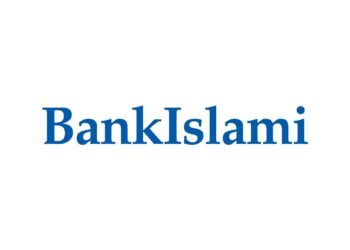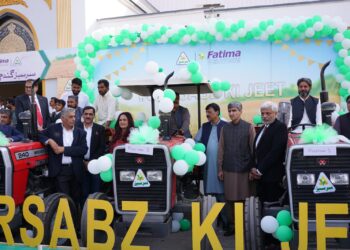Karachi Meeting Highlights Bilateral Partnership in the Energy Sector
Karachi: In a significant step toward boosting bilateral economic ties, US Chargé d’Affaires Natalie A. Baker held a detailed meeting with Federal Minister for Petroleum Ali Pervaiz Malik, where both sides reaffirmed their commitment to deepening cooperation in Pakistan’s oil, gas, and minerals sectors. The meeting underlined the growing strategic partnership between Islamabad and Washington, highlighting energy as a critical area for future collaboration.
The discussion revolved around exploring new investment opportunities, increasing business-to-business contacts, and ensuring greater participation of US companies in Pakistan’s exploration and production industry. Both sides expressed optimism that energy cooperation will not only help Pakistan overcome its domestic challenges but will also open new avenues of economic integration between the two countries.
US Interest in Pakistan’s Oil and Gas Market
During the talks, Natalie A. Baker conveyed Washington’s strong interest in expanding its footprint in Pakistan’s energy market. She emphasized that, consistent with President Donald Trump’s economic vision, American companies view Pakistan as a country with enormous potential in the oil, gas, and minerals sectors.
The US envoy noted that Pakistan is strategically located at the crossroads of South Asia, Central Asia, and the Middle East—making it an attractive market for energy-related investment. She highlighted that the US Embassy in Islamabad is actively working to facilitate direct engagement between American and Pakistani businesses, ensuring that potential investors have access to information, legal frameworks, and regulatory guidelines that could accelerate joint ventures.
Baker further stressed that the post-Counter-Terrorism Dialogue era between Pakistan and the US is shifting toward economic cooperation. She remarked that security cooperation has laid a strong foundation for trust, and now it is time to strengthen this relationship by working together in areas like trade, investment, and energy security.
Pakistan’s Bidding Round for Oil and Gas Exploration
On his part, Federal Minister for Petroleum Ali Pervaiz Malik warmly welcomed American interest in Pakistan’s energy sector. He revealed that the government is preparing to launch a new bidding round for onshore and offshore oil and gas exploration blocks. This initiative, according to Malik, presents a valuable opportunity for foreign investors, including those from the United States, to actively participate in Pakistan’s resource development.
He emphasized that Pakistan’s Ministry of Petroleum is committed to providing a transparent and investor-friendly environment. With favorable policies, legal protections, and competitive tax regimes, the government aims to make Pakistan a hub for energy exploration and production activities. Malik noted that ongoing information exchange with American companies is already underway, aimed at improving investment prospects and ensuring long-term partnerships.
Unlocking Pakistan’s Untapped Energy Potential
Highlighting Pakistan’s resource wealth, Malik reiterated that the country is home to vast energy reserves, including untapped shale oil, shale gas, and coal deposits. He explained that the government’s strategic priority is to utilize these resources efficiently and convert them into commercially viable reserves that can reduce reliance on imported energy.
Pakistan spends a significant portion of its foreign exchange reserves on importing petroleum products and liquefied natural gas (LNG). The minister stressed that enhanced domestic production, supported by American investment and technology, would significantly reduce Pakistan’s energy import bill and improve the balance of payments.
He added that partnerships with technologically advanced countries like the US could bring modern drilling techniques, data analysis, and environmentally friendly practices to Pakistan’s oil and gas industry. This, he noted, would not only strengthen the country’s energy independence but also create employment opportunities, transfer of knowledge, and technological advancement.
Economic Relations Beyond Energy
The meeting also emphasized the broader economic significance of strengthening Pak-US ties through energy cooperation. Both officials agreed that successful collaboration in the oil and gas sector would give a new dimension to bilateral economic relations.
Ali Pervaiz Malik pointed out that energy cooperation will create a multiplier effect for other industries, including manufacturing, transportation, and services. A stronger energy partnership would pave the way for increased bilateral trade, joint ventures, and industrial growth.
Similarly, Natalie Baker acknowledged that improved energy cooperation will contribute to regional stability, as Pakistan’s energy security is directly linked to its economic development. A prosperous and energy-secure Pakistan, she noted, would become a stronger partner for the United States in South Asia.
Background: Energy Challenges in Pakistan
To better understand the importance of this partnership, it is vital to look at Pakistan’s ongoing energy challenges.
- High Dependence on Imports: Pakistan imports nearly 80% of its energy needs, putting pressure on foreign reserves.
- Circular Debt Crisis: The energy sector suffers from a long-standing circular debt, exceeding Rs 2.6 trillion, creating financial bottlenecks.
- Power Shortages: Despite improvements in generation capacity, the country still faces frequent load shedding due to inefficiencies in distribution.
- Underutilized Domestic Resources: Pakistan has large deposits of coal, shale gas, and hydropower potential, but lack of investment and technology has kept them underdeveloped.
In this context, US investment and expertise could play a transformational role in addressing Pakistan’s energy shortfall.
US-Pakistan Energy Cooperation: Past and Present
Energy cooperation between Pakistan and the United States is not new. Over the years, Washington has supported several initiatives aimed at improving Pakistan’s power infrastructure, renewable energy adoption, and institutional reforms.
- USAID Energy Projects: The United States Agency for International Development (USAID) has funded multiple projects to upgrade Pakistan’s power plants, improve grid infrastructure, and introduce renewable energy solutions.
- Technical Assistance: The US has also provided training and technical support to Pakistani engineers and policymakers to improve energy efficiency.
- Private Investment: Several US-based companies have previously invested in Pakistan’s LNG and oil refining sector, though political instability and regulatory hurdles slowed progress.
This renewed push reflects a strategic pivot—both sides see energy as a sector with high potential for mutual gains.
Potential Benefits of US Investment in Pakistan’s Energy Sector
The outcomes of enhanced Pak-US energy cooperation could be far-reaching:
- Increased Domestic Production – Reducing dependence on costly imports.
- Technological Transfer – Access to advanced US drilling and refining technologies.
- Job Creation – Expansion of exploration and production activities creating skilled and unskilled employment.
- Environmental Sustainability – Introduction of cleaner technologies and better regulatory practices.
- Regional Energy Hub Potential – Positioning Pakistan as a corridor for energy trade between Central Asia, the Middle East, and South Asia.
Moving Forward: Roadmap for Cooperation
Both sides agreed that future cooperation would focus on:
- Facilitating direct contacts between US and Pakistani companies.
- Ensuring transparency in the bidding process for exploration blocks.
- Promoting public-private partnerships in oil, gas, and minerals sectors.
- Encouraging knowledge-sharing and technical training for local professionals.
- Strengthening legal frameworks to ensure investor confidence.
Ali Pervaiz Malik concluded the meeting by reiterating Pakistan’s readiness to welcome US investors, assuring that the government is committed to creating a conducive environment for sustainable investment.
Conclusion
The meeting between US Chargé d’Affaires Natalie A. Baker and Federal Minister Ali Pervaiz Malik marks an important milestone in the evolving relationship between Pakistan and the United States. By shifting the focus from traditional security concerns to economic and energy partnerships, both nations are signaling a new era of collaboration.
For Pakistan, the promise of US investment brings hope for energy security, economic growth, and reduced dependence on imports. For the United States, engaging in Pakistan’s energy market provides a strategic foothold in South Asia and opportunities for its companies to expand globally.
As both countries move forward, energy cooperation could become the cornerstone of Pak-US relations, offering long-term benefits for businesses, governments, and citizens alike.

























